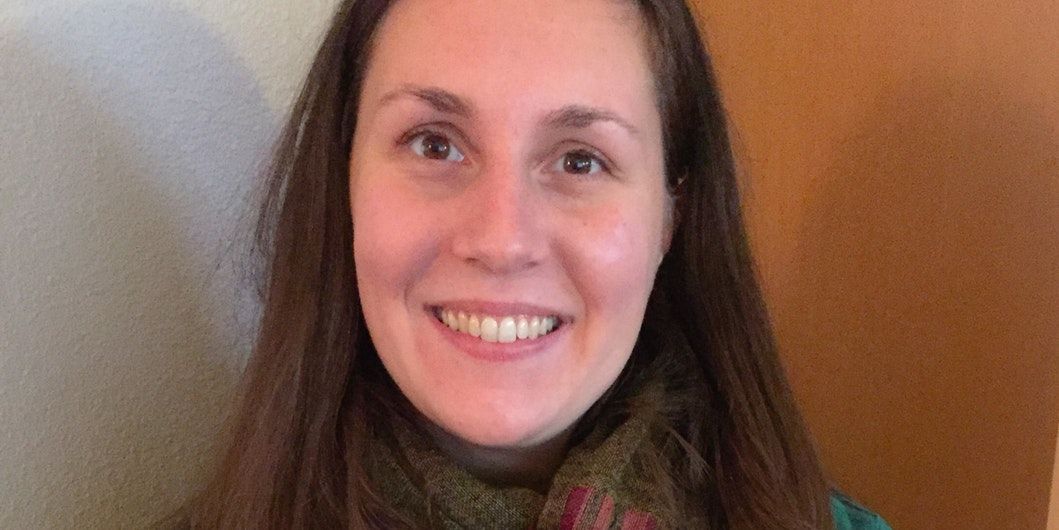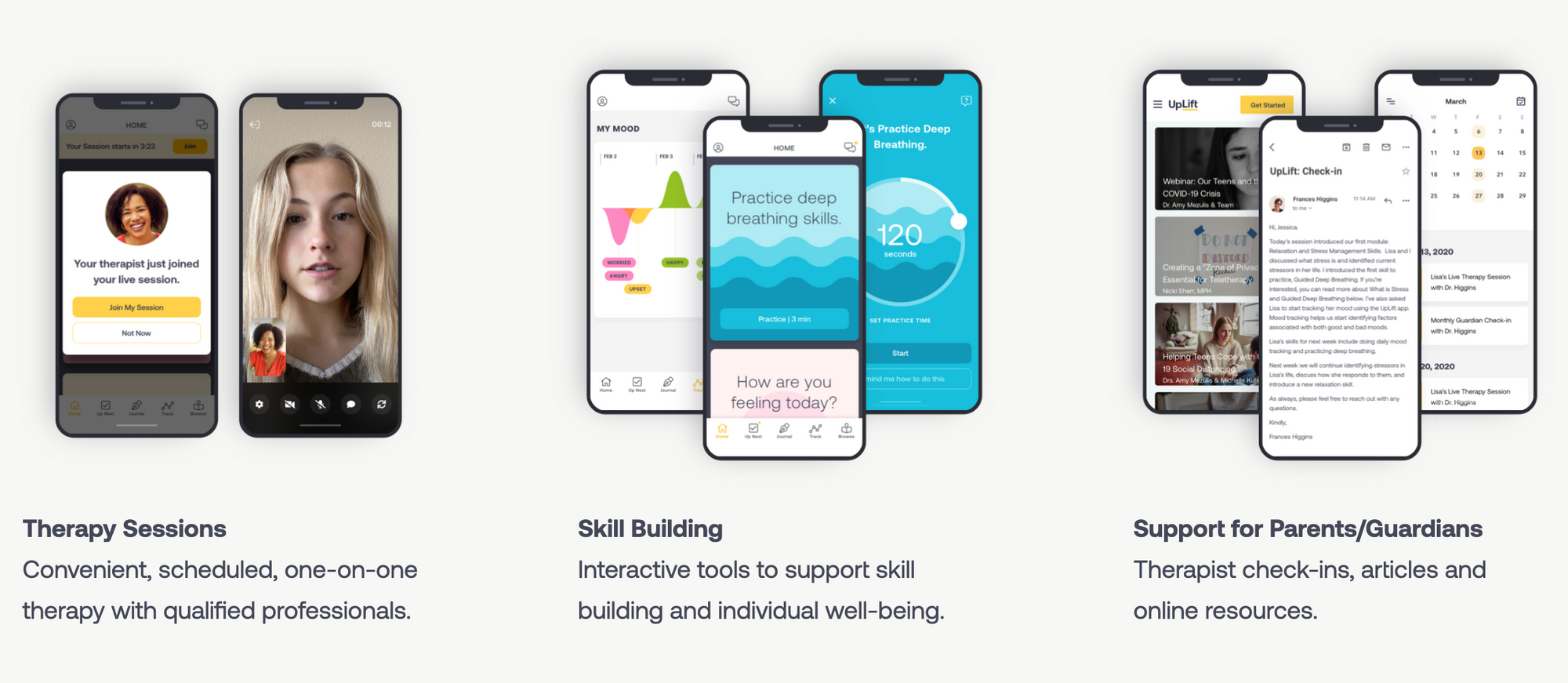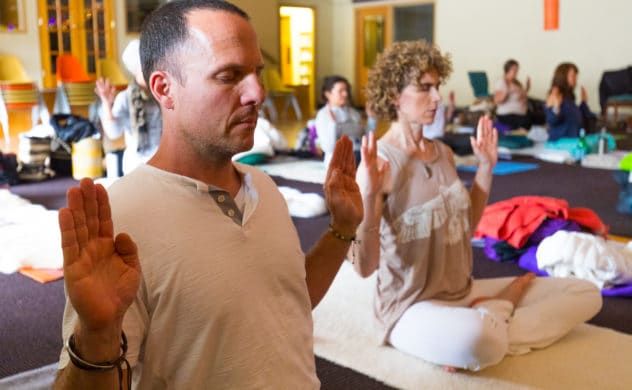Mental Health professionals have seen a significant rise in anxiety and depression in recent months. As people struggle with the COVID-19 pandemic, racial trauma, financial stress, and unemployment, it is important to identify strategies to address these concerns constructively.
We spoke with five mental health experts in the Seattle area to identify ways that you can care for yourself and those around you during these times. The experts shared their recommendations for dealing with anxiety, racial trauma, teen mental health, couples in isolation, and introduced how yoga and meditation can help calm the mind.

What is Anxiety?
Kristene Kaim of Belltown Therapy specializes in anxiety and mood disorders. Kristene was inspired to specialize in anxiety after working at several clinics in multiple countries and seeing how impactful anxiety can be on everyday life. Kristene introduced several strategies people can use to cope with anxiety.
Anxiety is unique from person to person. It is a persistent feeling that something is “off” and is often the point where developing a plan is no longer productive. People experiencing anxiety may find themselves ruminating over a specific worrying or fearful thought for an extended period.
Consult a Therapist
When a client experiencing anxiety first visits Kristene’s office, she begins by asking them how anxiety has impacted their life. Often, she asks people to write down and categorize the things they are feeling anxious about. Kristene finds that there are typically five categories that emerge, and one or two of these categories tends to dominate the list. Once identified, the work on anxiety can begin to shift in a more productive way.
Instead of pushing anxious thoughts away, Kristene encourages people to get to know their anxiety. Be curious about it. Sometimes she finds it helpful to ask the person to think about the worst-case scenario. For example, “what would happen if you lost your job?” or “what would happen if you couldn’t pay your mortgage?” Bringing up these thoughts in a therapeutic setting can help client’s process, sort out, and manage what and how the anxiety is about.
Strategies for Reducing Anxiety
Kristene uses techniques centered on existentialism, cognitive-behavioral, rational-emotive, and solution-focused therapy. Kristene recommends using the following techniques to reduce anxiety:
- Prioritize self-care: Begin by making sure that you are comfortable and address your basic needs—make sure that you aren’t hungry, you don’t need to use the bathroom, and you are not too hot nor too cold. Then do something kind for yourself. Try to get creative or experiment with play.
- Stretch out your body: Get your blood flowing and be conscious of your breath. Go out to a park or garden and try to stretch your body in a new position. Spend 3-7 minutes consciously breathing deeply to relieve anxiety. During this time, remind yourself that you are human.
- Try a sound bath: Sound baths are generally meditative sessions that are guided by repetitive notes at different frequencies. Sound baths can help you to relax and bring balance.

Racial Trauma
Nichole Williams works with adolescents, young adults, and underrepresented populations experiencing racial trauma. While attending graduate school, Nichole realized that people carry trauma related to racial identity and seeing people who look like them being hurt (or being hurt themselves). After realizing that not everyone’s trauma can be treated in the same way, Nichole set up her practice to address racial trauma.
Nichole identified how adolescents, young adults, and underrepresented populations experiencing racial trauma can seek help.
Find the Right Therapist
Deciding to consult a therapist to talk about trauma is a difficult decision. Nichole advises that those experiencing trauma dedicate time to finding the right therapist for them.
“We have to acknowledge that going to therapy for trauma is scary,” Nichole says. “Finding the right fit is important because you’re being vulnerable and you need to feel safe. It’s ok to shop for a therapist.”
Community mental health centers can be an affordable option. For those in the Greater Seattle area, Nichole recommends Hope Sparks in Tacoma because their staff is trained in bringing racial identity into therapy.
Decide When to Reach Out
Nichole begins by asking people experiencing trauma, “How often are you thinking about the scary things that happened? Is it impeding your day-to-day?”
If you notice that you are experiencing an extreme lack of motivation or you can’t stop ruminating over the same thoughts, that is a strong indicator that whatever is bottled up inside you needs to come out.
Be Kind to Yourself
During challenging times, it is important to prioritize being kind to yourself and devoting time to self-care. Nichole recommends allocating at least 20 minutes per day to spending time doing nothing without feeling guilty about it.
“Especially for people of color or other minority groups, you’re engaged and you’re being an activist, but you’re also experiencing ongoing trauma,” Nichole says. “You’re not a bad person if you need to get off the news for an hour or even a day.”
Nichole also emphasizes the importance of having a “teamwork attitude.” When you need to take a break, let the people you care about know so they can take over for you.
Consider Telehealth
Nichole shares that telehealth can be a great option for people considering therapy. While telehealth does not work for everyone, it allows more opportunity to connect with a specialist when you need it.

Teen Mental Health
Amy Mezulis of UpLift recognizes that teens are having a difficult time during this period of civic unrest and social distancing. UpLift conducted a survey of over 500 adolescents and young adults ages 14-24 across the U.S. to assess depression symptoms and suicidal thoughts in the first month of the COVID pandemic. The study revealed that nearly 7 in 10 youth report clinically significant depression symptoms and 1 in 7 report their suicidal thoughts have increased since social distancing was initiated.
Keep Teens Motivated
As UpLift psychologist Michelle Kuhn described in her article on helping teens find motivation, there are a number of ways parents can help their teens during this period of uncertainty. For example:
1. Use Rewards:
When we think of rewards, we often imagine physical gifts that are given in exchange for completing a task. But rewards can take shape in different ways.
- Give praise and recognition: Giving genuine praise and recognition to your teen as soon as you notice a positive behavior increases the likelihood of that behavior happening again. You can even praise teens’ motivation and initiative.
- Come up with privileges: Work with your teen to come up with privileges that can reward their positive behaviors. Privileges might include earning screen time or getting to choose where your family gets take-out for dinner.
- Reward with gifts: Bigger and more expensive gifts that take time to earn can be less effective for teens that have a hard time delaying gratification. If you or your teen wants to use a gift as a reward, use a visual that tracks their progress toward earning the gift.

2. Create Daily Schedules
Creating a daily schedule is an activity best done with your teen. Sit down with them and discuss activities that are important to both you and them. Once you each have a list of your goals, create a schedule that aligns with those goals.
- Try to front-load the day with enjoyable events. Your teen is more likely to get out of bed to do something they enjoy. They will be even more likely if the activity is done with a friend or family member who can hold them accountable.
- Build a ‘sandwiched’ schedule. Make sure that less interesting tasks are sandwiched between something rewarding. For example, your teen might get up and go for a walk, come home and make their bed, and then have breakfast.
3. Seek additional help
If you are concerned about your teen’s mental health, UpLift provides resource pages for depression, anxiety, self-esteem, and motivation. UpLift also has a team of trained clinicians available to work with adolescents and young adults.

Couples in Isolation
Tracy Piette is a licensed marriage and family therapist who has worked with children, adolescents, families, and couples for the past 20 years. Tracy works with individuals experiencing low self-esteem & subsequent mood challenges, ineffective communication skills, attention difficulties, anxiety challenges, and compromised relationship dynamics.
Tracy tells us couples have experienced a "seismic shift" in their daily lives, as entire families have begun sheltering in place without access to coping mechanisms such as visiting friends and extended family. This transition has taken a toll on many relationships. Tracy described several strategies couples can use to cope with grief and anxiety associated with "pandemic exhaustion" during this unique time of isolation.
Acknowledging and Recognizing Grief
- Start by acknowledging and managing grief resulting from the loss of routine and the subsequent feelings of sadness and anxiety. You don't have to do this in isolation, as reaching out to your partner to start a discussion can foster a team approach to combating the blues. Making a reach will help you to feel supported and understood with the potential to expand opportunities for emotional and physical intimacy.
- Recognize the way anxiety may have permeated your daily life. Constructing a proactive plan with your partner to alleviate negative fallout is empowering.
Coping Strategies
- Schedule in self-care activities at designated times of the day and allocate definitive start and stop times when working at home. This strategy can help in coping with daily stress.
- Improve your relationships through intimacy. The inclination to veer from routine has presented a unique opportunity to lower expectations of ‘big moments,' and harness interactions communicating kindness and ‘reach’ throughout the entire day.

Healing through Yoga & Meditation
Sada Simran of Guru Gayatri Yoga & Meditation Center has been practicing Kundalini Yoga since the 1970s. Since the COVID-19 pandemic began, Sada has moved his teachings and meditation sessions online to continue to bring the healing power of yoga to his clients. Sada shared how meditation can be integrated into our daily lives to bring healing.
What is Kundalini Yoga?
Kundalini yoga is a practical tool for everyday people that can help relieve anxiety. It utilizes movement, sound, and breath, and is easily accessible to everyone, regardless of age, gender, or body type.
Kundalini Yoga places a great emphasis on the breath. By matching specific breathing patterns to exercises, the experience of each exercise becomes deeper and richer.
Focus on Your Breath
When clients come to Sada Simran in an anxious state, he often begins by identifying the quality of their breathing habits.
Sada Simran says, “Sometimes, because of past trauma, the body forgets how to breathe the way it’s designed. Breathing is much like a balloon. The belly will relax and expand to draw in the air and contract to push the breath out.
Much of our anxiety can be caused by poor breathing habits, oftentimes breathing in reverse, by pulling the belly in on the inhale and out on the exhale. When we do that, the lungs limit their capacity to get a full breath, and that in itself can make a person anxious.
The quality of our breath plays a vital role in our feeling of well-being. Most of us take our breath for granted. Learning to re-educate your breathing habits can help calm your mind and rejuvenate your body.”
If you are interested in practicing Kundalini Yoga and meditation from home, visit Guru Gayatri on Facebook to participate in daily yoga and meditation sessions.
We want to hear from you! What are you doing to manage your stress and anxiety during these unprecedented times? Share your recommendations with us on Fresh Chalk!
